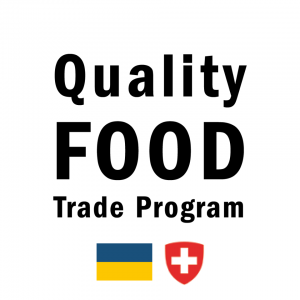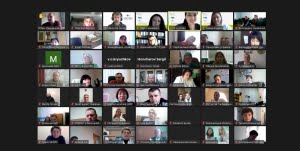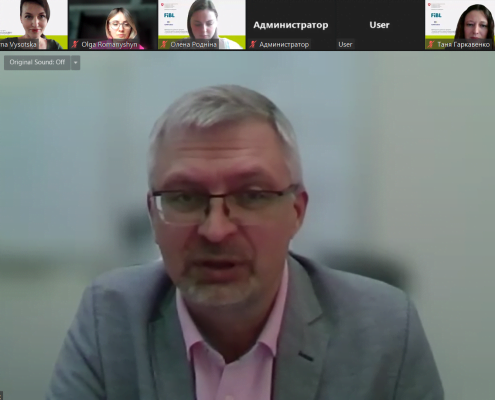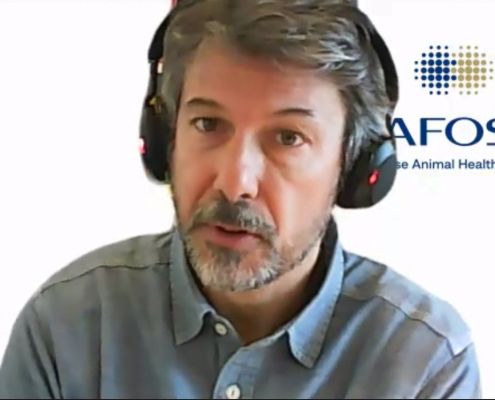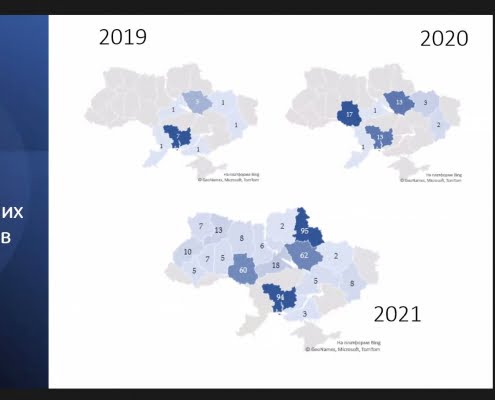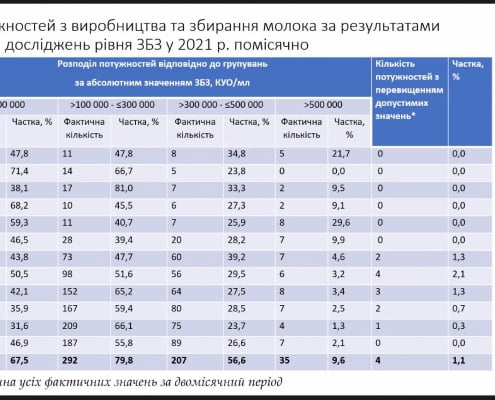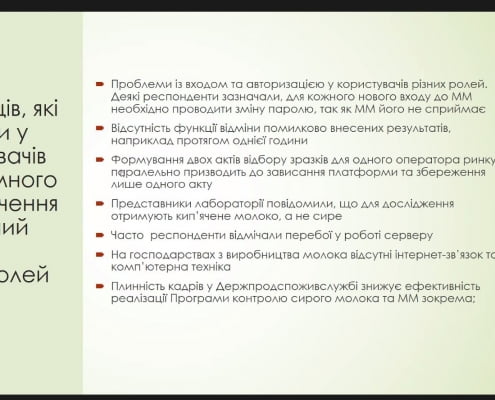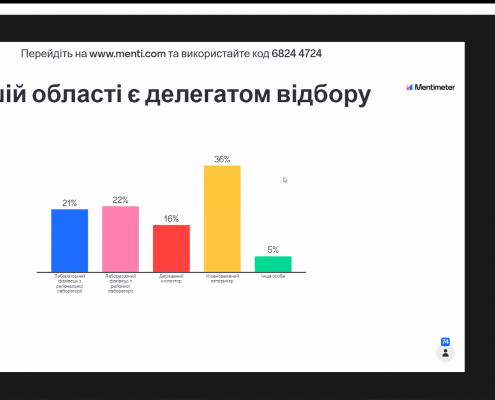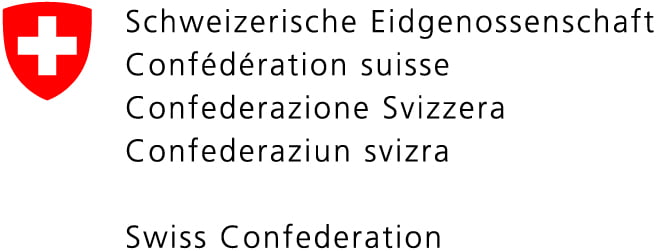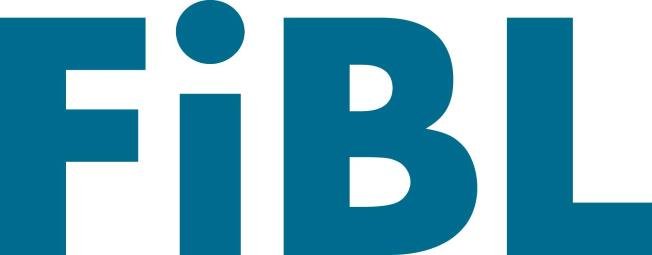On 17-18 February 2022, the webinar dedicated to the assessment of the results of the Pilot Project on Introduction of the Raw Milk Control Program Based on the Dairy Module was held.
The two-day event was held online with over 180 participants of the Pilot project (oblast inspectors, milk testing laboratories, sampling delegates, milk producers, and processors) and other stakeholders.
The objectives of the webinar were to assess the results of Phase 2 of the Pilot project and discuss the best practices of its implementation, problems, and lessons learned, and recommendations of further improvements.
Anatolii Vovniuk, Acting Head of the State Service of Ukraine on Food Safety and Consumer Protection, mentioned in his welcome speech: “First of all, the Dairy Module helps business to be better. In spring 2021 we completed Phase 1 of the Pilot project, made conclusions, and planned the next steps. By the end of 2021, a lot had been done, in particular, a number of laboratories that can conduct raw milk testing using internationally recognized methods had increased almost twofold. The participants of the Pilot project from 22 oblasts use the Dairy Module. The software users provided their additional comments and remarks on improving the processes. Together with the partners, we plan to proceed from the Pilot project to its full-scale implementation in 2022, as we see that everyone interested in the growth of their business, focused on entering the external markets, and willing to sell quality products is actively using the Dairy Module. I would like to ask you to continue making your proposals on software optimization. Thank you all for learning together and making our country better”.
Marco De Nardi, Senior International Expert, SAFOSO AG, noted: “Many years ago everything started with the brainstorming on the Pilot project, and today we see tangible results. A lot of efforts have been made in recent years, and in 2021 we saw significant achievements, and I am proud to be a part of this. In the frame of this project, the roadmap for the Pilot project rollout on the national level has been developed, as already noted by Anatolii Vovniuk. Both event days are very important for us because these are you who can help to improve the system and provide your recommendations on the Dairy Module optimization”.
Mykola Bilous, Deputy Director of the Department for Food Safety, Veterinary Medicine and Control in Organic Production, Head of the State Control Directorate, State Service of Ukraine on Food Safety and Consumer Protection, presented the key results of the Pilot project implementation in the oblast dimension. Thus, in 2021, milk testing in the frame of the Pilot project was conducted in 32 SSUFSCP laboratories of the regional (16) and interrayon (14) levels in 18 oblasts of Ukraine.
A number of FBOs participating in the Pilot projects has grown significantly in 2021. Overall, these are over 490 enterprises registered by the administrators in the Dairy Module, which is more than 8 times as many as in 2020, and more than 27 times as many as in 2019”.
Based on the analysis of the record extract from the Dairy Module “Sampling and Transportation/Sampling Acts”, in 2021, the sampling acts from 369 FBOs were properly registered, saved, and sent to the laboratory.
Oksana Novokhatnia, Head of Food Safety Division, State Service of Ukraine on Food Safety and Consumer Protection, told about the assessment of laboratory test results. Laboratory tests of raw milk samples in the frame of Phase 2 of the Pilot project were conducted based on the parameters regulated in Order No 118/2019 of the Ministry of Agrarian Policy and Food of Ukraine with the following frequency:
- Total bacterial count (TBC), CFU in 1 ml of milk at 30 °С – at least twice a month;
- Somatic cell count (SCC) in 1 ml of milk – at least once a month.
Tests for inhibitors and FP were conducted on FBOs’ request with the frequency established by them. A number of samples for TBC and SCC testing grew sevenfold in 2021.
With the increase of a number of milk producers and milk collection points involved, the average levels of TBC and SCC grew, but remained lower than the acceptable levels for cow milk as established in Order No 118/2019, namely:
TBC – not exceeding 500,000 CFU/ml;
SCC – not exceeding 500,000 cells/ml.
The further key tasks based on the results of Phase 2 of the Pilot project include the improvement of the Dairy Module functionality and its further integration into the SSUFSCP Main Information System.
In the period from 26 November to 6 December 2021, the poll of Dairy Module users was held to gather feedback and proposals as to the improvement of its structure and functionality.
The poll results were presented by Bohdan Pustovit, Acting Head of Division for Digital Technologies, Directorate for Digital Development, Digital Transformations and Digitalization, State Service of Ukraine on Food Safety and Consumer Protection.
In addition, Oksana Novokhatnia summarized the key conclusions based on the results of reporting by the SSUFSCP territorial bodies during the Pilot project implementation.
Day 2 of the webinar was in the format of discussion rounds dedicated to the important technical aspects, in particular, sampling, transportation, and testing.
All the participants also had an opportunity to take part in the online poll during the event, in particular, with regard to their assessment of the progress in the Pilot project implementation and recommendations on the next steps.
To conclude, Mykola Bilous and Marco De Nardi highlighted the important next steps as part of the execution of the Order of the Head of the SSUFSCP by the working group on the implementation of the Roadmap for the Raw Milk Control Program Implementation based on the Dairy Module.
For the speakers’ presentations and video recordings of the event visit the Raw Milk Control Program section.
